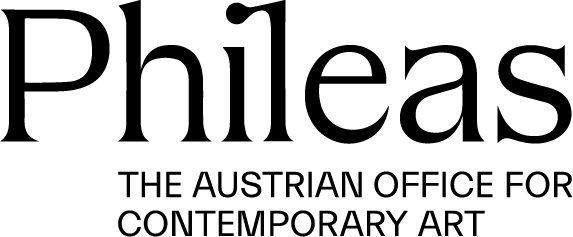Liesl Raff
Austrian Pavilion, 15th Gwangju Biennale
7 September – 1 December 2024
In 2024, Phileas was the commissioner and co-funder of the Austrian Pavilion at the 15th Gwangju Biennale in South Korea. The project was funded jointly by Phileas and the Federal Ministry for Arts, Culture, the Civil Service and Sport.
The Gwangju Biennale is among the most important biennials for contemporary art in Asia, attracting around 500,000 visitors each edition. Established in 1995 as a tribute to the Gwangju Democratisation Movement, it began to host national pavilions in 2018, which are located at various venues across the city. The theme of the 15th edition in 2024 was Pansori – A Soundscape of the 21st Century. Drawing on the Korean pansori tradition – a lyrical chant by a single artist accompanied by a drum – the sound and performative aspect draws attention to the relationship between humans and the surrounding space.
Austria’s first participation at the Biennale in 2024 was hosted by the LEEKANGHA Art Museum. Artists and curators were invited to submit joint proposals through an open call, which were assessed by the International Advisory Board of Phileas comprising Lisa Gersdorf (Publisher, frieze magazine, Berlin and London), Max Hollein (Director, The Metropolitan Museum of Art, New York), Tessa Praun (Director and Chief curator, Magasin III Museum for Contemporary Art, Stockholm), Hans Schabus (Artist and Professor, University of Applied Arts Vienna) and Simone Subal (Gallerist, New York).
The exhibition of Liesl Raff for the Austrian Pavilion in Gwangju was build upon her 2023 project Club Liaison, presented at fjk3 - Contemporary Art Space, Vienna in cooperation with Wiener Festwochen. Club Liaison was an exhibition, immersive installation and setting for live performances. This aspect was further developed for the exhibition in Gwangju, through collaborations between Austrian and South Korean performance artists.
Liesl Raff (born 1979 in Stuttgart) is an Austrian-based sculptor who is interested in the tactile quality of materials, and how to draw attention to them. She has become known for her works in latex, which she uses for its versatility, its stretchability, the way it adapts to different surfaces and appears almost like a second skin. In her installations, niches, shelters and protective zones offer places of retreat and a feeling of security. Raff's work does not seek to impose a new function on materials or surroundings, but rather opens up a space for conversation. The pavilion was curated by Fiona Liewehr, artistic director of fjk3 – Contemporary Art Space, Vienna, while the performance programme and production was overseen by Carolina Nöbauer (Tanzquartier Wien) and Florian Mayr respectively.
This was Liesl Raff’s first collaboration with Phileas.






